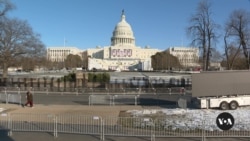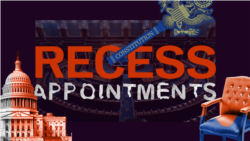Washington views every presidential inauguration as different from the previous one, but Monday's inauguration of Donald Trump will really stand out. VOA Senior Washington Correspondent Carolyn Presutti explains. Cameras: Adam Greenbaum, Carolyn Presutti.
2024 US Election
President-elect Donald Trump is shaping his administration as he nominates his Cabinet, a process that typically requires Senate confirmation. But a loophole known as a recess appointment could allow Trump to bypass the Senate, at least temporarily. Here’s what you need to know.






